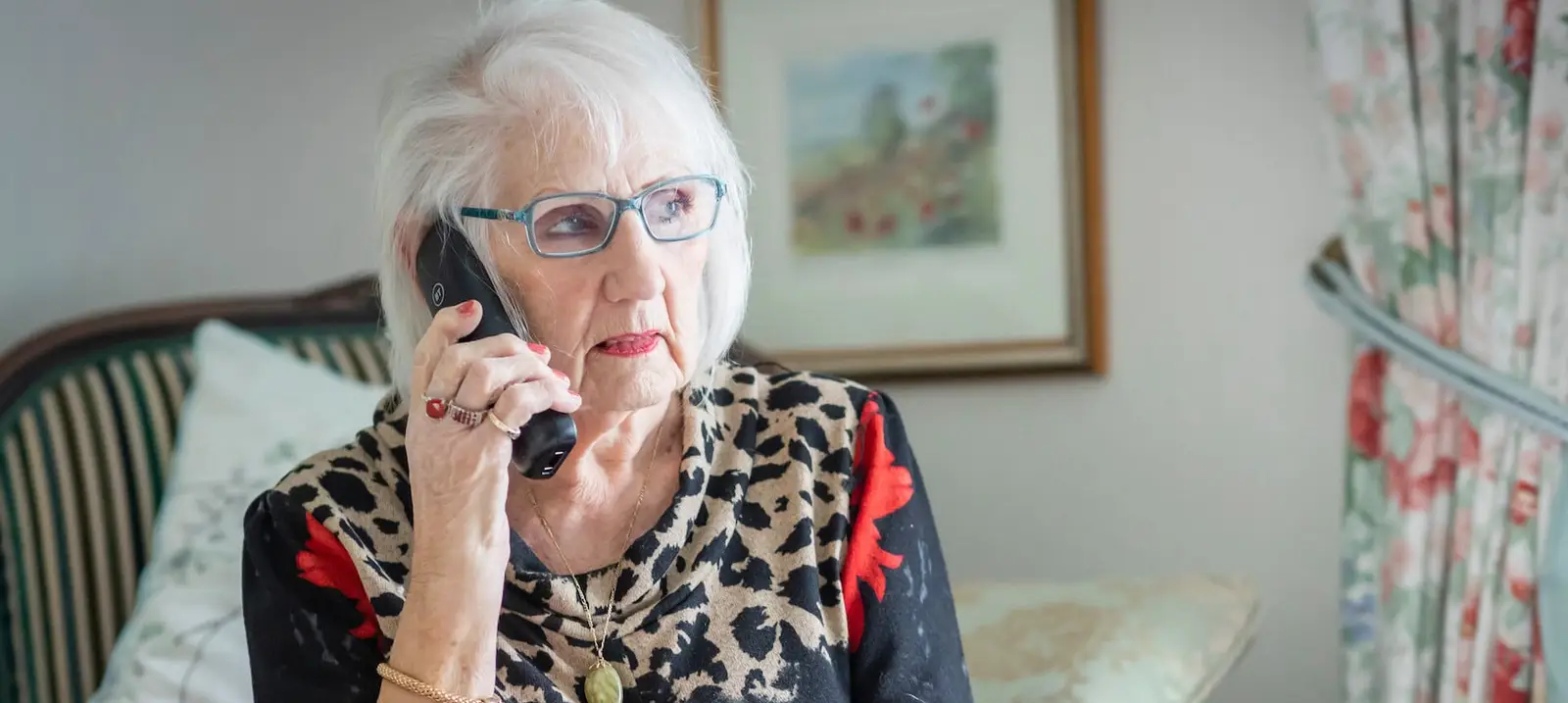How to care for elderly couples and keep them together
8-minute read | 20/06/2023

Editorial Contributor

When a couple has lived together for many years, they usually want to stay together, however this can be difficult if one of them needs specialised elderly care.
Often with couples, the person who is healthier takes on the role of caregiver for the other, but as both grow older, more help may be needed. Added complexity comes with a dementia diagnosis, and it might seem like the only option is that one member of a couple has to go into a care home.
There are, however, various care home alternatives such as home care which can ensure that you or your loved ones receive the support they need while also being able to continue living together as a couple.
Tips for keeping couples together as they age
Spouses age and develop care needs at different rates. This can lead to one spouse becoming the primary caregiver. As care needs diverge, more challenges arise. These challenges include getting additional help, ensuring a suitable living environment, and preventing caregiver burnout. This often results in couples being separated, as one moves into a care home for example.
The separation of a long-term couple can cause emotional distress, including feelings of loneliness and depression, and we want to avoid this as best as we can. Despite, care needs changing, it can be possible to keep couples together.
What to consider to keep an ageing couple together?
- Can they prepare food alone/together?
- Do either of them have a medical condition that needs nurses’ assistance? If so can home visits be arranged?
- Are there safety concerns in the home? Can these concerns be improved with home modifications and assistance devices?
- Can they manage their own responsibilities, such as paying bills? Do they have loved ones that can frequently help with this and make sure all important errands are complete?
- Can they still maintain their personal hygiene without help?
If you have concerns about some of these answers, there are solutions, such as dedicated care, such as live-in care, that help you or your loved ones stay together. If you’re currently providing care for a loved-one and need help with all of the above, respite care can offer you a much-needed break, so you can avoid burn out or feeling like you need to put your loved ones in different homes.
Home care services for couples
In-home care services can help to support you, your parents or relatives in their own homes. Traditional home care involves carers coming to visit several times a day to help with the person’s care needs. This can offer support to the spouse who is healthier, enabling them to carry on looking after the other in familiar surroundings.
This type of care at home typically involves visits of 20 minutes or half an hour, and there is a limit to how much the carer can do in that time. If your mother or father has complex needs due to an illness or they need dementia care, traditional home care may not be enough to provide the support they require. There are also times, such as during the night, when the couple will be alone with no one available to help.
Jean and Fred’s story
Jan has been with Elder since 2017, care is for her mum (Jean) and dad (Fred). Jean and Frederick are in their 90’s and married 70 years. They live in a McCarthy & Stone Assisted Living facility and their carers live with them.
“Our current carer is Maria. She has been absolutely fantastic. She is patient, gentle and kind. My parents treat her like a daughter, and she calls them ‘mum and dad’ – it’s very sweet.
Betty is also absolutely brilliant. She is sporty just like mum and dad, and she watches Wimbledon and football with them, which they all enjoy.
Julienne baked my mum and dad cakes, and served them homemade desserts like apples tarts and ice cream – my mum absolutely loved that! It’s the little things like that, they make all the difference.
The carers all become very much part of their lives. Not every carer has been a perfect fit, but mostly they have got on with my parents very well, and Elder have been very supportive in finding the right people for us.
My parents staying at home means I can spend a lot of time with them in their own home, which I wouldn’t be able to do if they were in residential care. The assisted living community has become my social network too – I organise bowls, yoga and poetry here too. There is a real community spirit. Neighbours all know that mum and dad have a live-in carer, and they comment on how lovely the carers are.”

Live-in care
Since older couples usually want to stay together and the majority express a wish to remain in their own home, private care is often the most suitable way to support them.
A live-in care company , such as Elder, will match the live-in carer with the care recipients so that they get on well together. In addition to helping with your loved one’s needs by providing 24/7 assistance, a live-in carer can also support the couple by helping with domestic tasks such as laundry, cooking and shopping.
The carer will need their own room in your house or your loved-ones house, as well as an internet connection and a TV for their leisure time. Although they will be available to help your mother and father with all their care needs and other tasks 24/7, it will probably be appropriate for them to give the couple some privacy, while being on call to help if necessary.
If your parent requires dementia care, it will be much less unsettling for them to remain in their own home, rather than having to go into a care or nursing home. The carer will also be there to support the other member of the couple, which is important since looking after someone who is living with dementia can be very stressful.
There’s also an increasing body of evidence to suggest that by full-time care in the home could reduce risk of a fall by up to 33%, and other significant causes of hospital admission – such as hip fracture – by 46%.
Ben and Zoe’s Story
Benjamin, known as Ben to his friends, married Zoe over 50 years ago, not far from South Pynton in Stockport. At the end of last year, Zoe had a stroke, which left Ben struggling to manage. One evening in December, he called Elder and spoke with a young man named Rich. Ben told Rich, “Things are getting too much, and I could do with some help” Rich listened to Ben’s requirements and notes down, “Benjamin is a lovely bloke, a real gentleman and still very much with it. He likes classical music and used to visit lots of art galleries”.
On the 15th of January, their third carer, Janice, arrived. Ben noted in his carer feedback survey that she was taking a little time to settle in. However, just one month later, the positive feedback started, and it just didn’t stop.
In March, Ben said, “Janice is splendid. She is tireless, extremely helpful and colossal fun.” Then in April, whether it was the Easter Egg chocolate high or the lambs dancing around the field, the fun continued. Ben exclaimed, “She is just so much fun! We do not want to lose her.” In May, continuing his 100% response rate, he wrote, “Janice is an absolute delight, caring for me quite as much as for my wife, Zoe. I fear we will be lost without her!”
Read their full story here.
Advantages of 24-hour care
The peace of mind that comes from knowing you or your loved ones have someone to provide help whenever it is needed is immense. Having a carer available to support you or a family member throughout the night also gives support to both members of the couple, and they will be able to specify what the daily tasks are.
From a financial point of view, live-in care can make better sense than paying for two places in a care home or nursing home. Because the carer will be able to help with so many aspects of daily life, there will be savings on other expenditure, such as home help or Meals on Wheels.
The care that is received will be documented, and a care plan drawn up so that all their needs are met. The care agency will consult both with the couple and with you to work out a plan of care that provides the best possible quality of life.
With a population living longer than ever before and more people starting families later in life, there is a growing group of people caring for their children and their parents at the same time, known as ‘Sandwich Carers’. Learn More

Find your ideal carer
We have connected over 5000 families to carers so far.





